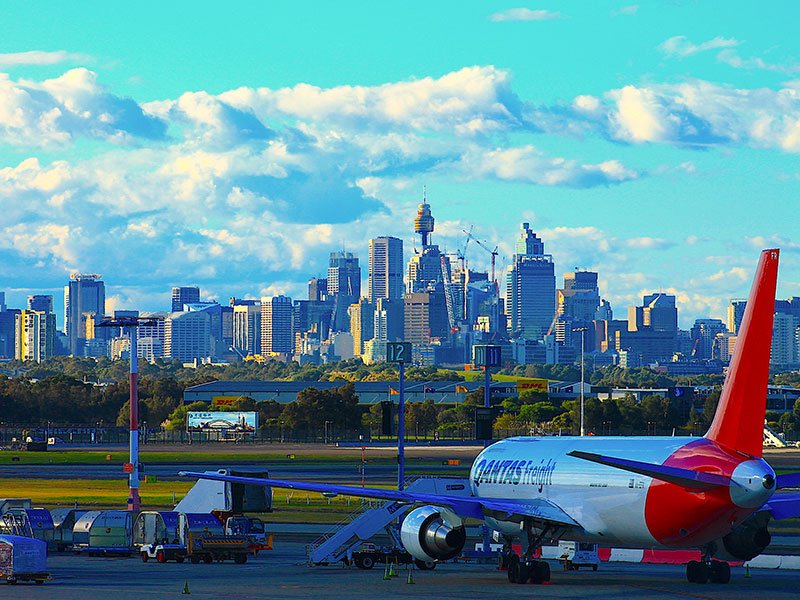The government will have the power to impose conditions or completely block foreign investment in local companies as part of the most significant changes to Australia’s critical infrastructure laws since they were introduced.
The reforms, announced by Prime Minister Scott Morrison and Treasurer Josh Frydenberg on Friday, could have a significant impact on local tech companies looking to attract offshore investment, with the existing threshold scrapped.
The proposed laws will introduce a new national security test that will be applied to any proposed foreign investment in sensitive national security business, with no financial threshold.
The test will allow the Treasurer to impose conditions on the investment or block it entirely based on national security grounds, and to divest previously approved fundings.

These new rules will likely apply to Australian telecommunications firms, businesses involved with the manufacturing or supply of defence or national security-related goods, services and technologies and any business that owns, stores, collects or maintains sensitive data.
“It’s important that as we continue to attract the investment on our rules, on our terms and in our interests, that that can be done in a way that is streamlined and it is efficient and the Treasurer has fashioned reforms to that end as well,” Mr Morrison said.
“In more recent times, there have been other elements of foreign investment that we need to be very careful about and we need to have strong rules to protect Australia against. Investment in critical infrastructure and sensitive businesses and data centres and things of that nature. We need to ensure that the appropriate protections are in place.”
Exposure draft legislation of the reforms is expected to be released next month, with the government planning to pass it through Parliament by the end of the year and for the laws to be in operation from 2021.
These reforms will make Australia’s laws around foreign investment in critical infrastructure more adaptable to technology change, the Prime Minister said.
Currently, most private investment in Australian companies under $275 million are not subject to screening or a national security test.
“The presence of monetary thresholds mean investments in some of our most sensitive sectors are not screened, even where an investment raises national security concerns,” a government paper on the new rules said.
“These sectors are particularly vulnerable as their specialised expertise often means they are comprised of a large number of new and/or smaller firms, with valuations that are frequently well below existing screening thresholds,” it said.
The new national security test will apply to any investment in a business deemed to be “sensitive”, and the Treasurer will have the power to impose conditions on this or to block it entirely.
The government will be consulting on what businesses should be caught by this test, but will likely include any covered by the Security of Critical Infrastructure Act 2018 and the Telecommunications Act 1997, any business involved in the manufacture or supply of defence or national security-related goods, services and technologies or any business that can create vulnerabilities in the security of defence and national security supply chain, and any business that owns, stores, collects or maintains sensitive data relating to Australia’s national security and/or defence.
The Treasurer will also be given the power to “call in” any other foreign investment for the national security test which is not already covered.
The legislation will strengthen the compliance and integrity framework around the foreign investment rules, with penalties upped and resources increased to monitor them.
The process for approving passive investments by government governments in partnership with private capital, in non-sensitive sectors, will be streamlined as part of the reforms.
Mr Frydenberg said there was nearly $4 trillion of foreign investment in Australia, with about 20 per cent from the US, 10 per cent from the UK and Japan each, and just over 5 per cent from China.
“Our foreign investment regulatory framework has always sought to strike a balance between, on the one hand, welcoming and inviting foreign investment to this country but on the other ensuring that those foreign investment proposals that succeed are in our national interest,” he said.
“But technology has been evolving and our geopolitical climate has become more complex.”
The Treasurer said that some of Australia’s “key partners” had already been informed about the changes and the context around them.
The Opposition has said it was not consulted on the reforms and is yet to see the details of them, but deputy Labor leader Richard Marles said they seemed reasonable.
“The direction of this is sensible. We haven’t seen the details of it and we’d like to. But the principle here is that when we’re talking about national security, the government needs to have a free hand in relation to the way in which it treats foreign investment into this country, and that should be an absolute principle,” Mr Marles told ABC television’s Insiders program on Sunday.
“Foreign investment has been critical to the development of this country, and we need to be welcoming foreign investment to be successful, so I think foreign investment is important but national security should be a lens through which this is seen and judged – that’s completely appropriate.”
Do you know more? Contact James Riley via Email.

